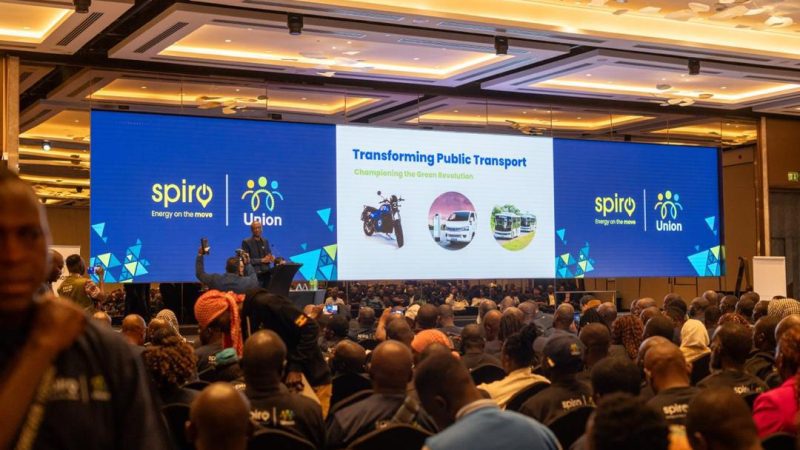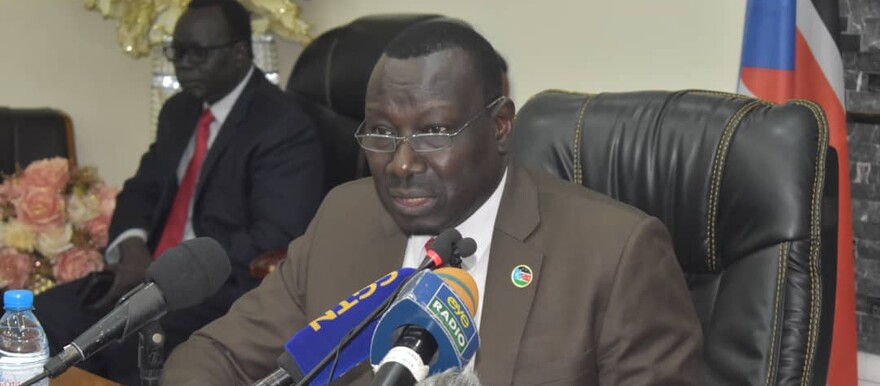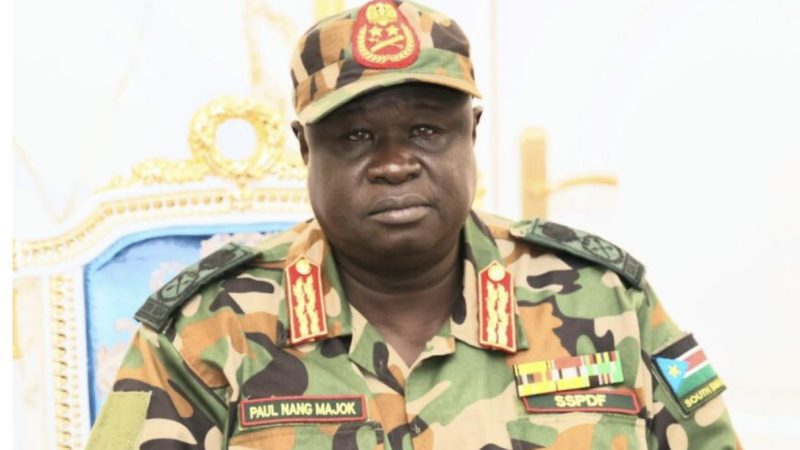South Sudan’s crude oil has been sold in advance for the next five years, the country’s finance minister said on Thursday.
Addressing the press in Juba during a joint press briefing with the Central Bank of South Sudan, Minister Agak Achuil Lual, said that is the reason the country has been unable to pay civil servants’ salary arrears since January.
“Where am I going to get the money? If the oil has been sold in advance up to 2027 that means I will go to 2028 to ask somebody to give me money such that by 2028 he will be given that oil,” the minister explained. “And by the time I am gone somebody will come in my place and he will find out that all oil of 2028 has been sold so he will have to go for 2029.”
Minister Achuil says he has to solicit for loans to pay the arrears.
“If I want to pay I will have to borrow and when I borrow that means your oil is being sold in advance. So this is where your oil money is going, nobody is eating it,” he noted.
The oil-rich nation produces roughly 150,000 to 170,000 barrels a day. But because of the share owed to oil companies and fees paid to Sudan, it earns income from 45,000 barrels at most, according to estimates available.
But the minister says the oil proceeds are now channeled to repay loans taken years back.
“The oil money is going for the payment of loans and paying some of the priorities of the government, it is not that the government is sitting on the money and not paying the arrears,” he said.
The finance minister further revealed that the bloated government brought about by the 2018 peace agreement has dealt a huge blow on the country’s economy as the cost of accommodating the officials in hotels and buying them vehicles is exorbitant.
Minister Achuil added that the global Covid-19 pandemic and floods have affected the production and sale of oil in the world.
Last year, President Kiir directed the finance and petroleum ministries to dedicate 5,000 barrels of crude oil per day for the payment of civil servant salaries.
However, the situation has largely remained the same as government employees including the organized forces go for about three to six months without pay.
South Sudan ranks third in oil reserves in Sub-Saharan Africa with roughly 3.5 billion barrels produced annually. Still, 90% of the gas and oil reserves are untapped, and the government says it is working to increase non-oil revenues to reduce dependency on oil revenues.










